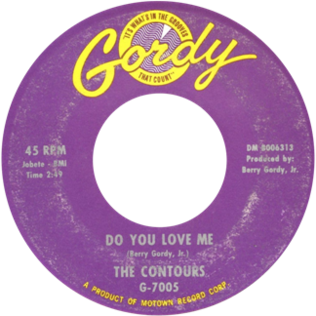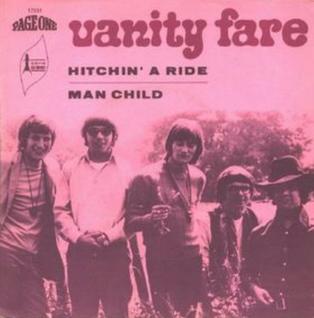"The Wonder of You" is a song written by Baker Knight. It was originally recorded by Vince Edwards in 1958, but this recording has never been released. In an interview with a DJ from Chattanooga, Tennessee, Ray Peterson told the story of how Baker Knight confided that "The Wonder of You" was originally written as a gospel song.
"Love Letters" is a 1945 popular song with lyrics by Edward Heyman and music by Victor Young. The song appeared, without lyrics, in the film of the same name released in October 1945. A vocal version by Dick Haymes, arranged and conducted by Young, was recorded in March 1945 and peaked in popularity in September. "Love Letters" was subsequently nominated for the Academy Award for Best Original Song in 1945, but lost to "It Might as Well Be Spring" from State Fair.

Christopher Frederick Andrews is an English-German singer-songwriter and producer, whose musical career started in the late 1950s. His biggest hits as a solo artist include "To Whom It Concerns", "Yesterday Man", and "Pretty Belinda". He had thirteen number one songs between five countries between 1965 and 1970.

"Until You Come Back to Me (That's What I'm Gonna Do)" is a song written by Morris Broadnax, Clarence Paul, and Stevie Wonder. The song was originally recorded by Stevie Wonder in 1967, but his version was not released as a single and did not appear on an album until 1977's anthology Looking Back. The best-known version of this song is the 1973 release by Aretha Franklin, who had a million-selling top 10 hit on Billboard charts. The song reached No. 1 on the R&B chart and No. 3 on the Hot 100 chart in 1974. It became an RIAA Gold record.
"Fire" is a song written by Bruce Springsteen in 1977 which had its highest profile as a 1978 single release by the Pointer Sisters. The song was later released by Robert Gordon and Springsteen himself.

"Brand New Lover" is a song recorded by the English pop band Dead or Alive. It was the lead single released from the band's third studio album, Mad, Bad and Dangerous to Know on Epic Records. It achieved international success when released as a single in 1986, including the United States and Japan, though it failed to enter the top 20 in the UK.

"To Sir with Love" is the theme from James Clavell's 1967 film To Sir, with Love. The song was performed by British singer and actress Lulu, and written by Don Black and Mark London. Mickie Most produced the record, with Mike Leander arranging and conducting. The song peaked at the top of the Billboard Hot 100, and became the best-selling single of 1967 in the United States.

"Do You Love Me" is a rhythm and blues song recorded by the Contours in 1962. Written and produced by Motown Records owner Berry Gordy Jr., it appeared twice on the Billboard Hot 100 chart, reaching numbers three in 1962 and eleven in 1988.
"I Only Have Eyes for You" is a romantic love song by composer Harry Warren and lyricist Al Dubin, written for the film Dames (1934) when Dick Powell introduced it. Several successful recordings of the song were made in 1934; later, there were charted versions by the Flamingos (1959) and Art Garfunkel (1975).

"Don't Let Me Be Misunderstood" is a song written by Bennie Benjamin, Horace Ott and Sol Marcus for American singer-songwriter and pianist Nina Simone, who recorded the first version in 1964. "Don't Let Me Be Misunderstood" has been covered by many artists. Two of the covers were transatlantic hits, the first in 1965 by the Animals, which was a blues rock version; and in 1977 by the disco group Santa Esmeralda, which was a four-on-the-floor rearrangement. A 1986 cover by new wave musician Elvis Costello found success in Britain and Ireland.
"I Don't Want to Talk About It" is a song written by American guitarist Danny Whitten. It was first recorded by American rock band Crazy Horse and issued as the final track on side one of their 1971 eponymous album. It was Whitten's signature tune, but gained more fame via its numerous cover versions, especially that by Rod Stewart. Cash Box magazine has described it as "a magnificent ballad outing."

"Old Time Rock and Roll" is a song written by George Jackson and Thomas E. Jones III, with uncredited lyrics by Bob Seger. It was recorded by Seger for his tenth studio album Stranger in Town. It was also released as a single in 1979. It is a sentimentalized look back at the music of the original rock 'n' roll era and has often been referenced as Seger's favorite song. The song gained renewed popularity after being featured in the 1983 film Risky Business. It has since become a standard in popular music and was ranked number two on the Amusement & Music Operators Association's survey of the Top 40 Jukebox Singles of All Time in 1996. It was also listed as one of the Songs of the Century in 2001 and ranked No. 100 in the American Film Institute's 100 Years...100 Songs poll in 2004 of the top songs in American cinema.

"It Only Takes a Minute" is a 1975 song by American soul/R&B group Tavares, released as the first single from their third album, In the City (1975). The song was the group's only top-10 pop hit in the United States, peaking at number 10, and their second number one song on the American soul charts. On the US Disco chart, "It Only Takes a Minute" spent five weeks at number two and was the first of four entries on the chart. The song was subsequently covered by Jonathan King performing as 100 Ton and a Feather in 1976 and by boy band Take That in 1992.

"(Your Love Keeps Lifting Me) Higher and Higher" is an R&B song written by Gary Jackson, Raynard Miner, and Carl Smith. It was recorded by Jackie Wilson for his album Higher and Higher (1967), produced by Carl Davis, and became a Top 10 pop and number one R&B hit.

"Hitchin' a Ride" is a song written by Mitch Murray and Peter Callander issued as a single by the English pop/rock band Vanity Fare in late 1969. It reached number 16 on the UK Singles Chart in February 1970 but was a bigger hit in the United States, reaching number 5 on the Hot 100 on June 27, 1970. Billboard ranked the record as the number 14 song of 1970. In Chicago, the record achieved even greater heights, topping the WCFL Big 10 Countdown on 18–25 May 1970, ranking #4 for all of 1970 and ranking #12 on rival WLS Radio 89 Hit Parade on 6 July 1970, ranking #10 for all of 1970. "Hitchin' a Ride" sold a million copies in the United States alone, and it became a gold record.
"I Don't Blame You At All" was a 1971 R&B song by The Miracles on Motown Records' Tamla label. It was composed by Miracles lead singer, William "Smokey" Robinson, produced by Robinson and Terry "Buzzy" Johnson, and was taken from their album, One Dozen Roses. This song was actually the follow-up hit to their #1 smash, "The Tears of a Clown", and reached the Top 20 of the Billboard Hot 100, charting at #18, and the Top 10 of the Billboard R&B chart, peaking at #7. It was also a Top 20 hit in the UK, reaching #11 on the British charts that year. It is also noted as the group's last Top 20 pop hit before Smokey Robinson's departure from The Miracles the following year, and was performed by the group on Dick Clark's American Bandstand on an episode dated July 10, 1971.

"Love Plus One" is a 1982 single by the British new wave band Haircut One Hundred from their debut album Pelican West. It was the band's biggest hit in their native UK, where it reached No. 3 and was certified gold by the BPI for sales in excess of 400,000 copies.

The singles discography of Elvis Presley began in 1954 with the release of his first commercial single, "That's All Right". Following his regional success with Sun Records, Presley was signed to RCA Victor on November 20, 1955. Presley's first single with RCA, "Heartbreak Hotel", was a worldwide hit, reaching the No. 1 position in four countries and the top 10 in many other countries. Other hit singles from the 1950s include "Don't Be Cruel", "Hound Dog", "Love Me Tender", "Too Much", "All Shook Up", "(Let Me Be Your) Teddy Bear", "Jailhouse Rock", "Don't", "Hard Headed Woman" and "A Big Hunk o' Love". On March 24, 1958, Presley entered the United States Army at Memphis, Tennessee, and was stationed in Germany. He left active duty on March 5, 1960.

"Any Way That You Want Me" is a song written by Chip Taylor that was first released in September 1966 by Tina Mason as the B-side to her single "Finders Keepers". It has been covered by a number of artists, with the most successful version being by English rock band the Troggs.

"Don't Throw It All Away" is a song written by British musician Gary Benson and first released by the Shadows on their 1975 album Specs Appeal. Benson released his version as a single later the same year, which reached number 20 on the UK Singles Chart in the fall of 1975.














